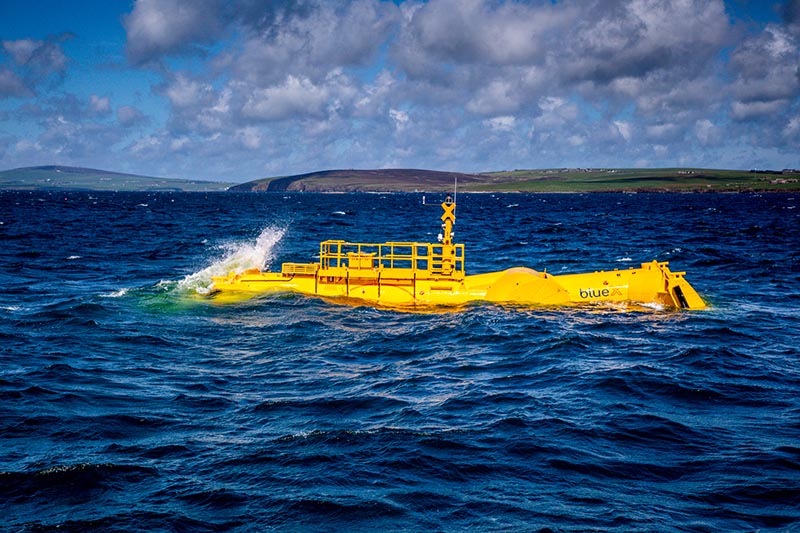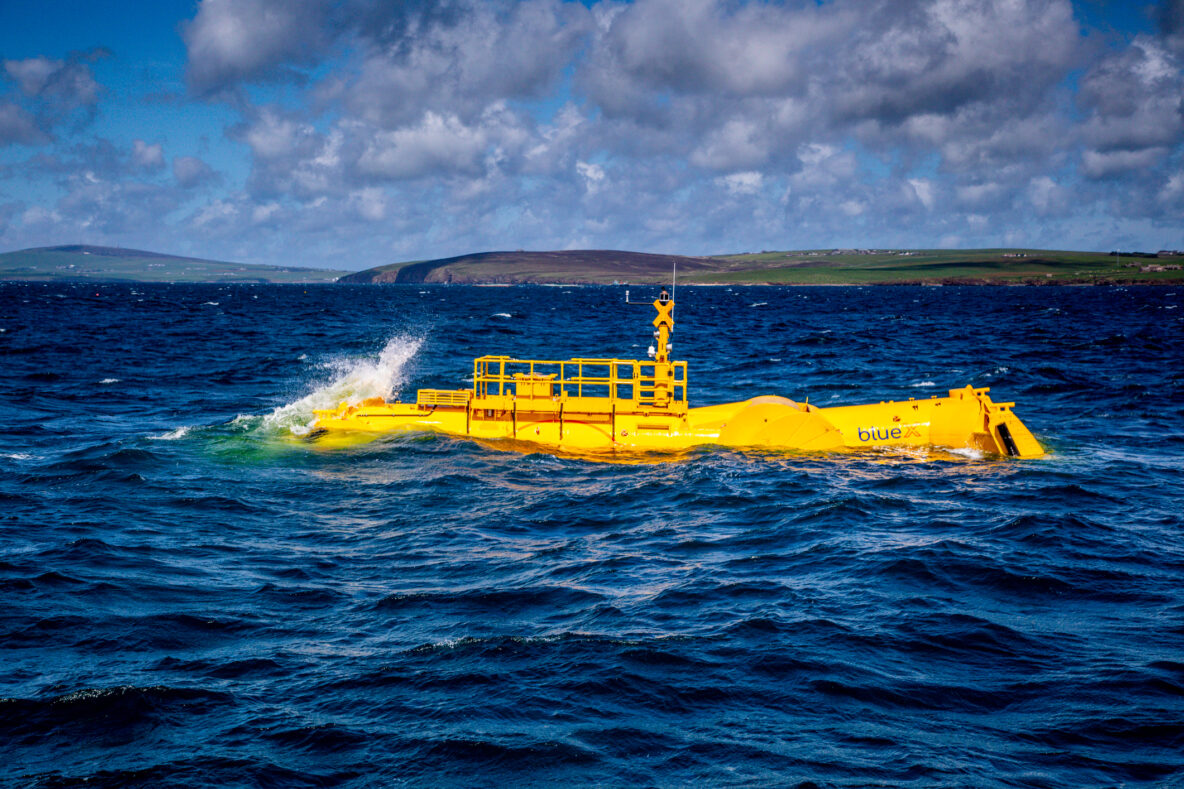
Press release – 5th March 2024
- Plan to finalise Orkney project this Spring.
- Industry players to assess lessons learned and plan next steps.
A groundbreaking ocean energy project which has combined wave power with subsea energy storage to power subsea equipment has now completed a 12-month test programme at sea and will end this Spring.
The final phase will commence shortly and will include removing all equipment from the site, ahead of inspection and clean down onshore in Orkney and at Verlume’s operations facility in Dyce, Aberdeen.
The £2million Renewables for Subsea Power (RSP) project connected the Blue X wave energy converter – built by Edinburgh company Mocean Energy – with a Halo underwater battery storage system developed by Aberdeen intelligent energy management specialists, Verlume.
The industry-backed project, located 5km east of Orkney Mainland, has shown how green technologies can be combined to provide reliable and continuous low carbon power and communications to subsea equipment, offering a cost-effective future alternative to umbilical cables, which are carbon intensive with long lead times to procure and install.
In recent months energy majors TotalEnergies and Shell Technology – Marine Renewable Program have joined project leads Mocean Energy and Verlume in the pan-industry initiative, alongside PTTEP, the Thai national oil company, Serica Energy, Harbour Energy, Baker Hughes, Transmark Subsea, and the Net Zero Technology Centre (NZTC).
“The test programme has been a tremendous success,” says Andy Martin, Chief Commercial Officer at Verlume.
“This phase of RSP was initially conceived as a four-month at-sea demonstration, but the quality of data and the robustness of our combined technologies as well as tremendous support from the oil majors, led us to extend the programme to a full year. We now have increasing confidence in the reliability and the commercial potential of this system.”
Ian Crossland, Commercial Director at Mocean Energy says:
“In the subsequent months, all the technology providers will examine critical components for wear and tear against performance metrics defined both individually and as a fully integrated power and communications ecosystem. A key part of this process will be assessing lessons learned and any future upgrades that may be required for a fully commercial system.”
Graeme Rogerson, Head of Net Zero Technology at NZTC says:
“It’s fantastic to see the RSP project successfully demonstrated. The work carried out during this project shows what’s possible when innovative technology is given the right financial and industry support. This is only the beginning for Mocean Energy’s Blue X wave energy converter and Verlume’s Halo underwater battery storage system; future phases will further accelerate the technology’s development and accelerate commercialisation, which is always the end goal.”
The joint industry participants and developers are now evaluating near-term and future plans for further deployment or possible testing on live assets.
This may include deploying a similar project in Scottish waters, and / or a new project or projects overseas to further demonstrate how this combination of green technologies can enable reliable low carbon power and communications to subsea equipment in a live environment.
In 2021, the consortium invested £1.6million into phase two of the programme – which saw the successful integration of the core technologies in an onshore test environment at Verlume’s operations facility in Aberdeen.
In 2021, Mocean Energy’s Blue X prototype underwent a programme of rigorous at-sea testing at the European Marine Energy Centre’s Scapa Flow test site in Orkney, where it generated first power and gathered key data on machine performance and operation.
Verlume’s subsea battery energy storage system, Halo, has been specifically designed for the harsh underwater environment, reducing operational emissions and facilitating the use of renewable energy by providing a reliable, uninterrupted power supply. Halo’s fundamental basis is its intelligent energy management system, Axonn, a fully integrated system which autonomously maximises available battery capacity in real time.

